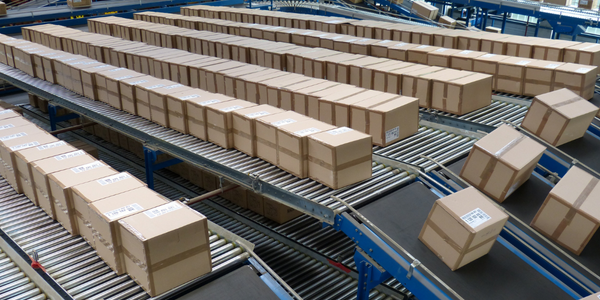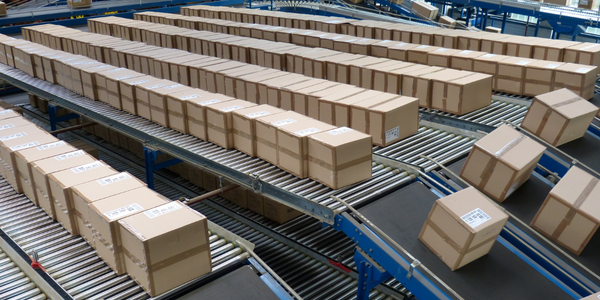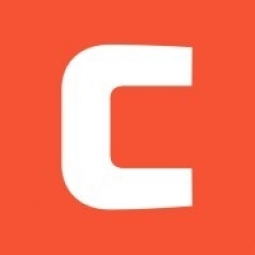下载PDF
Dropps Leverages IoT for a Sustainable and Efficient Supply Chain
技术
- 分析与建模 - 机器学习
- 基础设施即服务 (IaaS) - 私有云
适用行业
- 包装
- 零售
适用功能
- 物流运输
- 仓库和库存管理
用例
- 智能包装
- 供应链可见性(SCV)
挑战
Dropps 是一家以创新洗涤剂盒而闻名的公司,在调整其供应链与可持续发展目标方面面临着重大挑战。该公司拥有复杂的分销商网络和将库存运送到大型商店的第三方履行中心。这种模式既不高效也不划算。此外,Dropps 还在实体零售店与其他品牌争夺购物者的注意力和货架空间。该公司希望减少碳足迹,并使其供应链像洗涤剂盒一样轻便高效。为了实现这一目标,Dropps 需要一个新的货运合作伙伴来帮助优化路线并控制碳排放。
关于客户
Dropps 是一家通过洗涤剂盒的发明彻底改变了洗涤剂行业的公司。该公司由乔纳森·普罗珀 (Jonathan Propper) 创立,他最初发明了一种低泡沫洗涤剂,可以有效去除污垢,但不会损坏织物。该配方在 20 世纪 80 年代以 Cot'n Wash 的名称上市。后来,乔纳森获得了配方并创立了 Dropps,推出了一种简单的可溶解的荚,消除了与传统洗涤剂相关的混乱、浪费和包装。 Dropps 最初采用实体零售策略,但后来转向直接面向消费者的模式,以减少碳排放并符合其可持续发展目标。
解决方案
Dropps 决定转向直接面向消费者 (DTC) 模式,这使公司能够更好地控制其供应链并减少碳排放。该公司在芝加哥地区建立了自己的仓库和履行中心,位于其供应商网络的中心。 Dropps 与 Convoy 合作管理其全卡车货运网络,因为他们对供应链可持续发展有着共同的愿景。 Convoy 的解决方案包括汇集卡车装载能力、提供货运洞察以及轻松跟踪和控制碳排放。 Convoy 的批处理功能允许承运商同时预订多个作业,确保最大的资产利用率和最小的空载里程。康宏还整合了客户的私人车队运力,创建了一个可以大规模优化的托运人网络。
运营影响
数量效益
相关案例.

Case Study
Improving Production Line Efficiency with Ethernet Micro RTU Controller
Moxa was asked to provide a connectivity solution for one of the world's leading cosmetics companies. This multinational corporation, with retail presence in 130 countries, 23 global braches, and over 66,000 employees, sought to improve the efficiency of their production process by migrating from manual monitoring to an automatic productivity monitoring system. The production line was being monitored by ABB Real-TPI, a factory information system that offers data collection and analysis to improve plant efficiency. Due to software limitations, the customer needed an OPC server and a corresponding I/O solution to collect data from additional sensor devices for the Real-TPI system. The goal is to enable the factory information system to more thoroughly collect data from every corner of the production line. This will improve its ability to measure Overall Equipment Effectiveness (OEE) and translate into increased production efficiencies. System Requirements • Instant status updates while still consuming minimal bandwidth to relieve strain on limited factory networks • Interoperable with ABB Real-TPI • Small form factor appropriate for deployment where space is scarce • Remote software management and configuration to simplify operations

Case Study
How Sirqul’s IoT Platform is Crafting Carrefour’s New In-Store Experiences
Carrefour Taiwan’s goal is to be completely digital by end of 2018. Out-dated manual methods for analysis and assumptions limited Carrefour’s ability to change the customer experience and were void of real-time decision-making capabilities. Rather than relying solely on sales data, assumptions, and disparate systems, Carrefour Taiwan’s CEO led an initiative to find a connected IoT solution that could give the team the ability to make real-time changes and more informed decisions. Prior to implementing, Carrefour struggled to address their conversion rates and did not have the proper insights into the customer decision-making process nor how to make an immediate impact without losing customer confidence.

Case Study
IoT Data Analytics Case Study - Packaging Films Manufacturer
The company manufactures packaging films on made to order or configure to order basis. Every order has a different set of requirements from the product characteristics perspective and hence requires machine’s settings to be adjusted accordingly. If the film quality does not meet the required standards, the degraded quality impacts customer delivery causes customer dissatisfaction and results in lower margins. The biggest challenge was to identify the real root cause and devise a remedy for that.

Case Study
Digital Retail Security Solutions
Sennco wanted to help its retail customers increase sales and profits by developing an innovative alarm system as opposed to conventional connected alarms that are permanently tethered to display products. These traditional security systems were cumbersome and intrusive to the customer shopping experience. Additionally, they provided no useful data or analytics.

Case Study
Zenon the Ideal Basis for An Ergonomic HMI
KHS develops and produces machines and equipment for filling and packaging in the drinks industry. Because drinks manufacturing, filling and packaging consist of a number of highly complex processes, the user-friendly and intuitive operation of equipment is increasingly gaining in significance. In order to design these processes as simple as possible for the user, KHS decided to introduce a uniform, transparent and standardized solution to the company. The HMI interface should meet the requirement for people with different qualifications and enable them to work on a standard platform.






